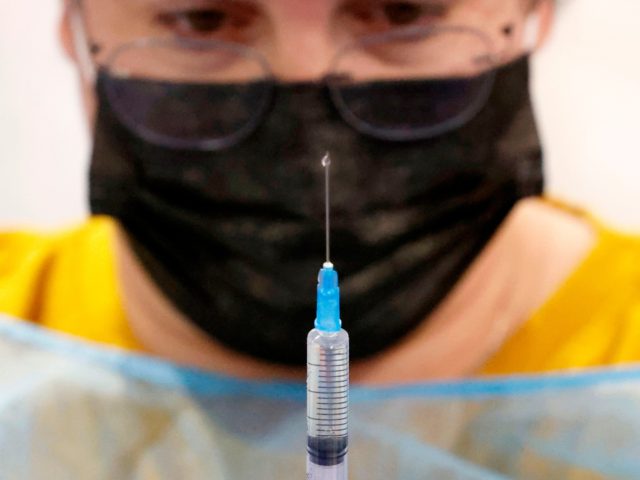ROME — Pope Francis has insisted that receiving the coronavirus vaccine is a moral imperative, in apparent contradiction of a statement by the Vatican’s doctrinal office.
“I think ethically that everyone should take the vaccine,” the pope told Italian journalist Fabio Marchese Ragona in a television interview to be aired Sunday evening. “It should be done.”
“It is not an option — ‘I think so, I don’t think so’ — it’s an ethical choice, because you gamble with your health, you gamble with your life, and you gamble with other people’s lives,” the pontiff declared.
“I don’t know why some people say, ‘no, the vaccine is dangerous,’” Francis continued. “Doctors are proposing it as something that can be helpful and as something without special dangers, why wouldn’t you take it?”
“There’s a sort of suicidal denialism at play that I can’t explain,” he concluded. “Today, you should take the vaccine.”
Some may find the pope’s seemingly intransigent tone on the coronavirus vaccine ironic, given his frequent condemnations of doctrinal and moral rigorism and his embrace of creative flexibility and personal discernment.
The Vatican’s doctrinal office (CDF) released a statement in December correcting an earlier declaration by the U.S. bishops that said taking a coronavirus vaccine constitutes a moral obligation.
In a joint declaration with Fort Wayne Bishop Kevin Rhoades, Kansas City Archbishop Joseph Naumann asserted that “being vaccinated safely against COVID-19 should be considered an act of love of our neighbor and part of our moral responsibility for the common good.”
In its clarifying note, the Vatican office stated that from a moral perspective, reception of the vaccine must be voluntary.
Practical reason “makes evident that vaccination is not, as a rule, a moral obligation and that, therefore, it must be voluntary,” the CDF declared.
The text adds that from the ethical point of view, “the morality of vaccination depends not only on the duty to protect one’s own health, but also on the duty to pursue the common good, which may “recommend vaccination, especially to protect the weakest and most exposed.”
The CDF note stated that it is morally imperative for the pharmaceutical industry, governments and international organizations to ensure that vaccines “are also accessible to the poorest countries in a manner that is not costly for them.”
After the CDF put out this clarification, Kansas City Archbishop Joseph Naumann walked back his earlier statement on the moral duty to receive a coronavirus vaccine, saying his words on the subject had been misinterpreted.
“Some interpreted the Dec. 14 statement to say Catholics had a moral obligation to receive the vaccine,” wrote Carol Zimmermann for Catholic News Service (CNS) Tuesday.
“The short answer is we don’t have a moral obligation” to do so, Archbishop Naumann told CNS in an interview. The intent of the statement was rather “to show it is permissible to use these vaccines.”
“What we do say is that there is a moral obligation to work for the common good,” he added.

COMMENTS
Please let us know if you're having issues with commenting.